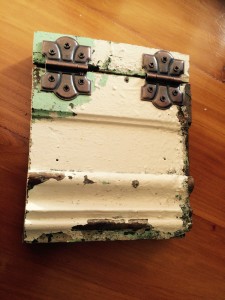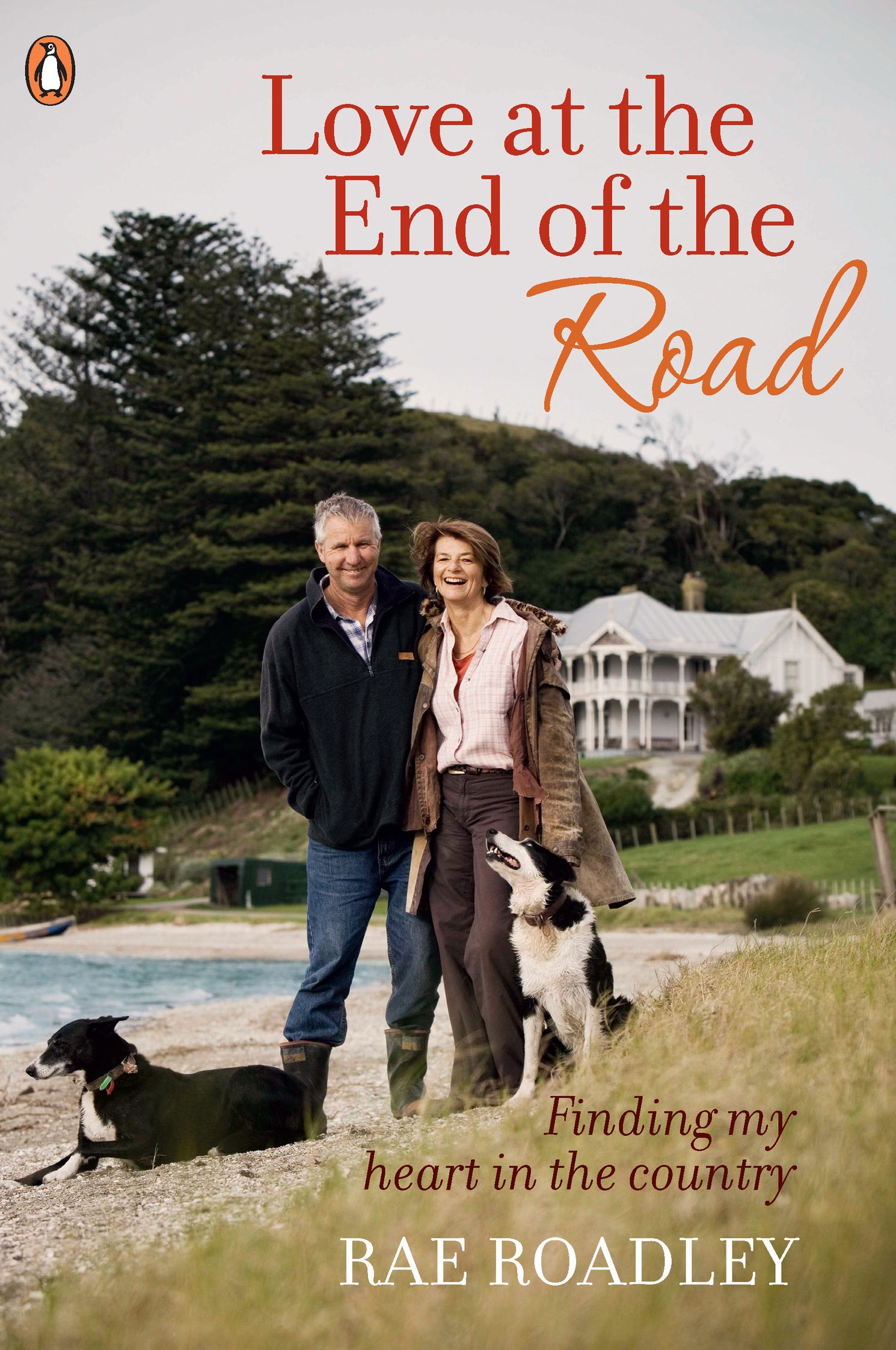
Special notebook – made with love and Batley House skirting board
It was surely a world first. A bloke who contacted me to buy a copy of my book asked for a hunk of the house as well.
“Sure,” I replied. “I’ll see what I can find.” Dave suggested weather board, but a scavenge in the wood heap in the back paddock turned up something I thought would be even better. As I inspected the piece of skirting from the bathroom, back when it was white and that old-fashioned pale green, I wished for the creativity to do something clever with it. A small hole added to its rustic charm. The farmer says it accommodated a water pipe.
I posted it with a copy of ‘Love at the End of the Road’ and, soon afterwards, Dave reported that the gift had been a success. He knew this because when Vicky received my book and the notebook he’d made using the wood as a cover, she was overcome with emotion. The reason for her tears – Vicky lived here in the 1960s and 70s when children from families in strife stayed at Batley House which had started its life a century earlier as a home, boarding house and store.
A few weeks later, Dave, Vicky and her sister Michele visited. Twice they’d been to Batley, but had been hesitant about returning to their former home. This time, here they were in our living room remembering not just what the house had been like back then, but what their lives had been like.
When they arrived in 1967, Vicky had a special honour. Lance and Olive Field, who had foster children and cared for children from troubled homes during school holidays, drew the line at babies – except for Vicky. She and her four siblings were wards of the state. Their father was in prison and their mother wasn’t coping. Of course, they had to be together.
“We loved it here,” said Michele as they remembered being called to meals by a bell and siren, the massive vegetable garden and the loving care and guidance provided by Lance and Olive. There had been excitement chasing possums in the night, and thrills sliding down the bank in front of the house on a wet plastic sheet. One boy, going rather too fast, flew high and landed on the road. The children loved to swim. One day Lance had screamed, “Get out of the water.” The kids, not used to hearing his voice raised, obeyed – and just as well. A five-metre shark cruised along nearby.
Lance and Olive showed the children nothing but kindness. The only time he got angry was when he put a stop to the mischievous kids’ attempt to dig up the grave on the hill behind the house.
“We thought it was a Maori princess,” recalls Michele. It’s the grave of Grace Masefield, a daughter of the first settlers who died in 1874.
Batley House was the only place the five children stayed together. In other homes, Vicky, Michele, their two sisters and brother were separated and sometimes endured harsh conditions.
“We felt privileged to come here,” they said. “We didn’t have a home. When we thought of a home, this is where we’d think of.”
And now, almost half a century later, Vicky’s notebook is a permanent reminder of the place she and her siblings call home, the place where they were cared for and loved.
Love at the End of the Road is now an ebook: /Rae-Roadley/e/B013Q6NKWY




Perry Allen
September 1, 2015 at 2:33 pm (UTC 13) Link to this comment
Hi Rae, read your book when we moved on to the river (Otamatea ) 3 yrs ago. Just want to say what an excellent read, loved the local content and a highlight was seeing my mate Pongo get a mention. Hope to read another soon. ? We live above you on Oneriri side @ Eco village, our paradise, straw bale, beside river living on fish and home kill. Love it here. Regards Perry and Karen
Rae Roadley
September 2, 2015 at 11:36 am (UTC 13) Link to this comment
Hi Perry and Karen – thanks for the kind words. I’d give you a wave, but you’re just a tad too far up river. Glad you love your lives. Same here.